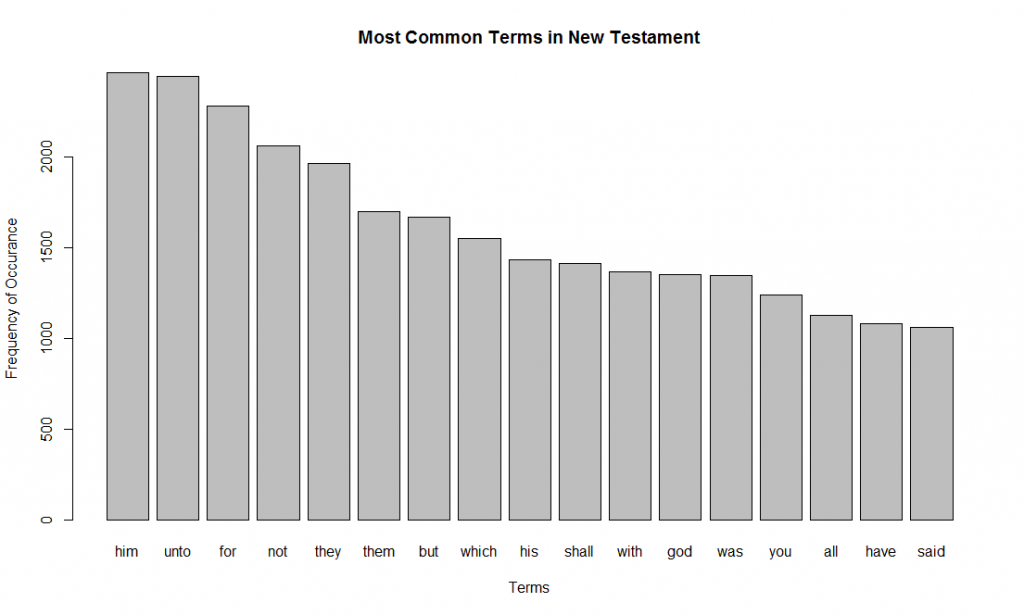Student Research | Computers Can Compose Music...But Can They Write Scripture?
By Jeff Parker, Class of 2017
This excerpt is taken from an MSiA student research blog posting. Each month, students in our program submit original extracurricular research as part of our blog competition. The winner(s) are published to the MSiA Student Research Blog, our program website, and receive a chance to attend an analytics conference of their choice. Visit our blog to see more.
I was so impressed to learn from a peer that computer programs have been written to compose music. Music is widely considered an art that takes innately human abilities to craft pleasing sounds. Computers are dull and inanimate while music is alive and human. I do not have a musical background, but after investigating this “artificial” music, I realized that the programs analyze sounds and patterns to piece together new compositions.
So if computers can compose music, something so deeply personal and human, I thought, what else deeply personal can they do? An idea sparked when I asked my wife late at night to tell me her favorite scripture verse in lieu of reading a chapter as is our nightly custom. My wife was too sleepy to read, in her drowsy voice gabbled what sounded like a random assortment of the most common biblical words, “For behold, thus sayeth the Lord, verily I say unto thee, that…” It was hilarious, but to the untrained ear, could have passed as a legitimate passage.
The English language, much like music, follows certain patterns – any English major would agree. There are subjects and predicates instead of tunes; nouns and verbs instead of notes. The language of the ancient Jewish, Greek and Roman authors as translated by English monks certainly follows a very distinct pattern. Many bible scholars and linguistic experts have written much on this. I thought I might try my hand at using a computer to “artificially” write scripture.
I should note that the Bible is something that is deeply personal and intimate for many people (as is music). For others, it is a very divisive subject. My humble attempts here are not to make a mockery of the Bible or to advocate it, but rather just to explore linguistic patterns using a scientific process. Wherever you fall on a religious spectrum, I think much can be learned from this type of text analysis. For instance, there are 5,975 unique words in 7,958 verses in the King James Version of the New Testament. I decided to focus solely on the New Testament, because 1) it is more recent, 2) it takes place over a shorter period of time than the Old Testament and 3) it is both shorter for computing purposes and easier to understand. All my R code can be found here. Below are the most common terms in the New Testament (“the”, “and”, and “that” are excluded):

Just using the most common words, I can manually piece together something that sounds like a scripture verse:


